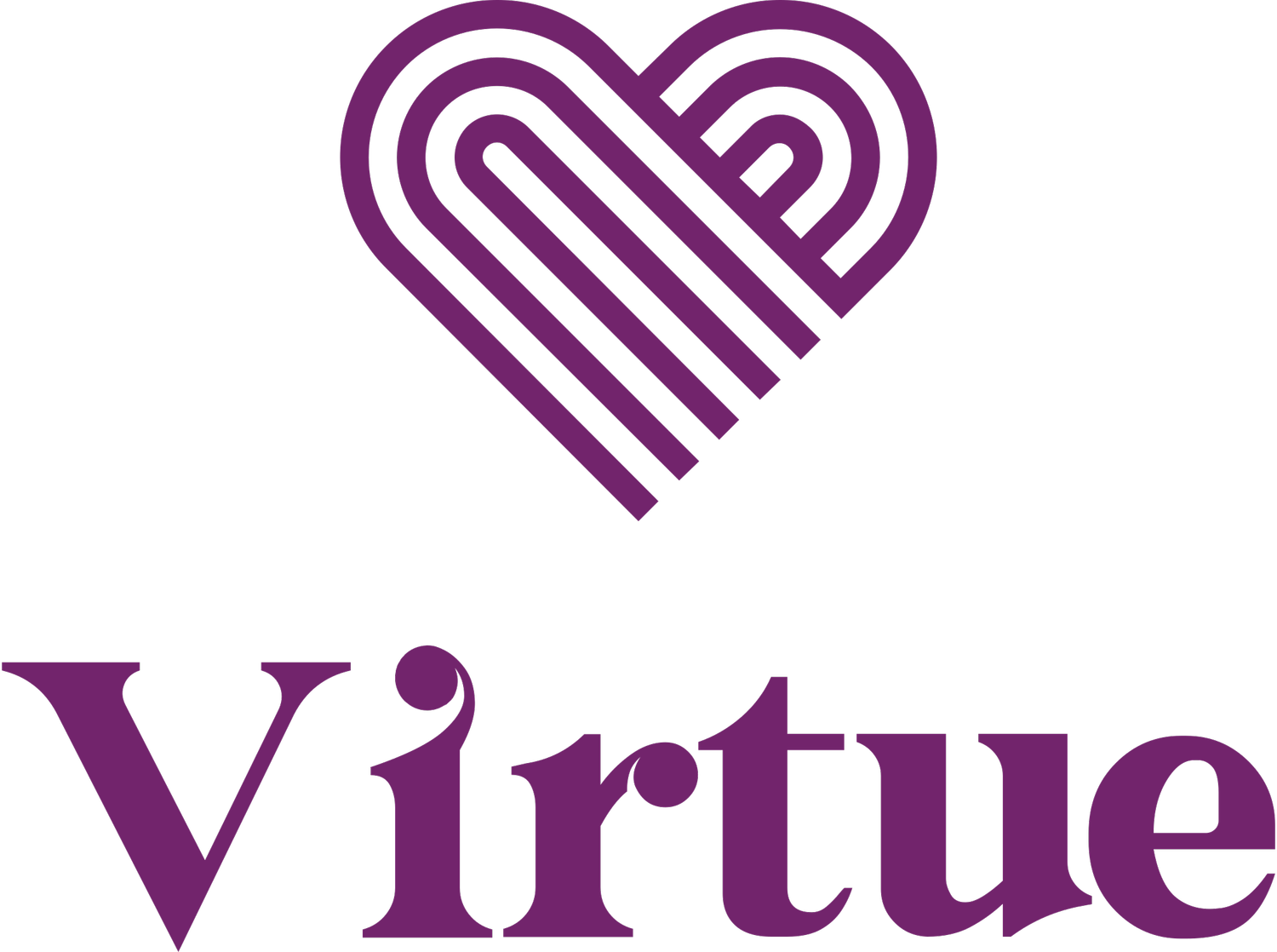Urgent Acute Virtual Ward
Urgent acute treatment at home from just £125 per day

What is a Virtual Ward?
Virtual Wards are a pioneering care model proven to be effective in providing urgent and acute hospital-level treatment to patients in their home, using remote and in-home clinical teams enabled by technology.
-
The term, whilst commonly now used in the UK, can be misleading - for the reason that treatment may involve provision of clinicians, medicines and therapy in the home, not just ‘virtually’ (remotely) for monitoring.
The term Virtual Ward can also sometimes incorrectly be used to describe Remote Monitoring of Patients, for Non-Acute purposes. Whilst Remote Monitoring is an important component of Virtual Ward care, it is not the sole characteristic. Neither are Virtual Wards intended for treatment of non-acute patients, but rather acute patients who would otherwise require a hospital bed.
The term ‘hospital-at-home’ is also sometimes used to describe Virtual Wards. The term ‘hospital-at-home’ is historically associated with non-digitally enabled, traditional provision of medical resource in the home, without ‘virtual’ (remote) resource.
Purple is the new gold - a standard you can depend on
Our holistic model of Virtual Ward care to patients is accepted as the gold standard - we call it the Purple Standard. It is our pledge to patients and their families, of level of quality, safety and value, that they can depend on.
It is recognised by the following characteristics:
-
Treatment of urgent and acute medical conditions that would otherwise require admission to a hospital bed or A&E attendance. We provide this wherever the patient maybe, at, home, in a nursing home or care home.
-
Direct clinical responsibility for a Patient’s treatment resides with a single, named, highly experienced Consultant Specialist. The Consultant or their delegated Doctor will carry out a daily virtual ward round for each patient, approve changes to medications and be a point of escalation for advice and guidance or emergencies.
Our Virtual Nursing Hub perform the following duties for patients receiving our Elective Remote Monitoring services:
Remote monitoring of patient vital signs
Collection of Patient Reported Outcome Measures (PROMS) and questionnaires
Rapid escalation management, leveraging advice & guidance from specialist doctors, with oversight by the named Consultant Specialist
-
Our highly skilled Virtual Nursing Hub operates 7 days a week, 365 days per year between the hours of 8am to 8pm. Over 80% of our Virtual Nurses are Advanced Nurse Practitioners, each having a MSc in Nursing.
Our Virtual Nursing Hub perform the following duties for patients in our Urgent Acute Virtual Ward:
Remote monitoring of patient vital signs and collection of Patient Reported Outcome Measures (PROMS) and questionnaires by our Virtual Nursing Hub
Patient calls via telephone or video with our Virtual Nursing Hub, a minimum of twice daily, or at a higher frequency if deemed beneficial by the clinical team
Rapid escalation management, leveraging advice & guidance from specialist doctors, with oversight by the named Consultant Specialist
-
Virtue source best-in-class global manufacturers of Remote Monitoring & Remote Diagnostics medical devices which we integrate to the Virtue platform to ensure our clinicians have access to real-time, clinically rich vital signs data, along with a seamless user experience for both patients and clinicians.
-
Virtue prescribe, provide and administrate acute medicines for patients in our Acute Virtual Ward, with oversight by the responsible Consultant Specialist and Doctor.
Our capability includes provision of in-home Intravenous Antibiotics, which is useful for treating infections such as but not limited to respiratory infections such as Pneumonia and Bronchiectasis, as well as other types of infections.
-
Physiotherapy is not commonly associated by the general public as being relevant to respiratory conditions, such as COPD or Pneumonia, or with cardiovascular conditions such as Heart Failure – to cite some examples. It is however a vital component of effective and holistic patient recovery and rehabilitation. It can in a broad range of scenarios be delivered very effectively virtually by a remote physiotherapist. This is where relevant, provided as standard within our service.

Discover your journey as one of our Virtual Ward patients
Accessing our services is as quick and simple as 1, 2, 3.
Discover how to receive your own personalised Treatment Plan and access our services via Referral or Self-Referral in just minutes. Depending on the service type, we can have you onboarded and receiving services at-home in just a matter of hours.
A Typical Day in our Acute Virtual Ward
Common Questions about our Acute Virtual Ward:
-
Our services address conditions that are proven to be effectively treated by virtual ward care models, backed up by a strong evidence base, mature market adoption and clearly established clinical operating and governance procedures. This ensures robust care quality and safety. The full range of conditions we treat can be found here.
-
In short, yes. However, it should be noted that patients will require the support of their regular care team and in some cases may be need to provide additional support. In all cases, it is the discretion of our Consultant Specialist as to whether they believe it is best for the patient, as well as safe for the patient to be treated in our virtual wards and they will make a decision to accept the patient on this basis.
-
Yes. Owing to the high prevalence of hospital admissions of patients who are receiving domiciliary care, or residents of nursing and care homes, our virtual ward is highly relevant. We remove the clinical risk from the providers of such services and provide the services to keep the patient at home and enable the patient to remain at ‘home’, with ongoing provision of their services. That’s a win for all parties. Find out more about our Partnership Programme for Homecare Providers.
-
Virtual wards are a safe and proven model of care, well-established within the NHS and guided by mature clinical governance and operating procedures. They are supported by comprehensive evidence demonstrating their effectiveness. Technology plays a critical role in maintaining safety, with digital tools like wearables and remote monitoring devices providing real-time data, allowing healthcare teams to monitor patients' vital signs and intervene early if necessary. At Virtue, we employ Advanced Nurse Practitioners to monitor patients, with clear escalation paths to Specialist Doctors and a named responsible Consultant for the patient, who is assigned to the patient for the duration of their Care Plan. This ensures robust handling of escalation and the benefits that arise from patient and clinician continuity. Our services are governance by a robust clinical safety framework that is governed by our Clinical Governance Committee, which is chaired by our Chief Medical Officer and evaluated by our Board of Directors. The care provided in our Virtual Wards is governed by
Overall, the proven benefits and rigorous safety frameworks of virtual wards make them a reliable alternative to traditional hospital care.
-
In the event that a patient's condition deteriorates while being monitored in our virtual ward, our escalation pathways ensure that the responsible clinical team are notified and engaged promptly. Depending on the severity of the condition, escalation may involve increasing the frequency of monitoring, initiating a remote consultation or if necessary, recommending that the Patient is transferred to an acute care facility with an Intensive Care Unit for further treatment. We wish to provide reassurance that Virtual Wards are very well established, proven care models, widely adopted by the NHS. We have well-defined Acceptance Criteria for patients, monitoring protocols and escalation pathways. Put simply, we will only accept patients into the Virtual Ward who are of an acuity and risk profile that we are confident to treat without any undue risk.
Key benefits of virtual wards below
Overall, hospital admissions pose a stress on the mental health of patients, exacerbating cognitive decline and contributing to worse outcomes post-discharge.

5 reasons why virtual wards create better clinical outcomes than traditional hospitals:
-
The Covid pandemic provides a stark reminder of the impact of hospital acquired infection, with the proportion of hospital patients becoming infected by the virus after admission reaching 24%1.
A national survey conducted in 2023 estimated that approximately 6.4% of patients in acute care settings acquire an Healthcare Associated Infections (HCAI) during their hospital stay. These infections not only contribute to increased morbidity and healthcare costs but can also prolong hospital stays and complicate treatments.
The most common types of HCAIs in the UK include:
Urinary tract infections (UTIs), often associated with the use of urinary catheters.
Surgical site infections (SSIs), which can occur after surgery.
Respiratory infections, particularly pneumonia, often linked to mechanical ventilation in intensive care units (ICUs).
Bloodstream infections (BSIs), such as those caused by methicillin-resistant Staphylococcus aureus (MRSA).
Clostridioides difficile (C. difficile) infections, often linked to antibiotic use.
The prevalence of these infections varies, but they commonly affect between 5% and 10% of hospitalized patients, with intensive care units seeing even higher rates. For example, in ICUs, the prevalence of HCAIs can be as high as 7.4%, with pneumonia and bloodstream infections being particularly prevalent
Put simply, there is significantly less risk of infection at-home.
-
There is strong evidence from UK and US research that patients experience significantly poorer sleep in hospital settings compared to at home, primarily due to noise disturbances and environmental factors. A study3 focused on adult patients in a UK Medical Admissions Unit found that noise levels in hospital wards caused sleep disturbances for 30-50% of patients. Patients reported average sleep durations of 5.3 hours in hospital compared to 7.1 hours at home.
The link between sleep and recovery rates is well documented, impacting patient mental and physical well-being. Sleep quality directly impacts the rate of recovery from illness or surgery in the following ways:
Immune Function: Sleep plays a critical role in immune system function. Research shows that during sleep, the body produces cytokines, proteins essential for fighting infections and reducing inflammation. Lack of sleep can impair immune responses, making the body more susceptible to infections and slowing down recovery from illness or surgery.
Tissue Repair and Growth: During deep sleep, the body releases growth hormone, which is crucial for tissue repair and muscle regeneration. This phase of sleep promotes healing and recovery after surgeries or injuries. Disrupted or insufficient sleep can lead to slower tissue repair and delayed recovery.
Pain Tolerance: Studies indicate that poor sleep can decrease pain tolerance, leading to heightened sensitivity to pain and discomfort. Patients who get adequate sleep after surgery or injury tend to have a higher pain threshold, which can lead to a smoother recovery process.
Cognitive Function and Mental Health: Adequate sleep helps maintain cognitive functions like memory, focus, and emotional regulation, which are essential for adhering to treatment plans and rehabilitation exercises. Lack of sleep, on the other hand, can increase stress and anxiety, which may hinder recovery.
Our Virtual Nursing Hub perform the following duties for patients receiving our Elective Remote Monitoring services:
Remote monitoring of patient vital signs
Collection of Patient Reported Outcome Measures (PROMS) and questionnaires
Rapid escalation management, leveraging advice & guidance from specialist doctors, with oversight by the named Consultant Specialist
-
Nutrition plays a crucial role in recovery by providing the essential building blocks (proteins, vitamins, and minerals) needed for tissue repair, immune support, and energy production, all of which are critical to healing after hospitalisation or illness.
Many hospital patients, especially the elderly, are at risk of malnutrition. Recent studies by the National Institute for Health and Care Research6 and NHS England found that a significant proportion of hospital patients are either malnourished or at risk of becoming so, due to various factors including lack of personal preferences, meal timing, patients being asleep when food is served, logistical constraints and hospital budget constraints.
Studies have indicated that home-based care allows for better nutrition management, where patients can have more personalised meals, greater control over the quality and nutritional value, as well as the time that is served. This is particularly evident where patients receive support from carers or family members.
The link between nutrition and recovery from hospital illness or surgery is well evidenced and understood. Good nutrition is scientifically linked to better recovery rates from hospital care due to its direct influence on multiple physiological processes vital to healing and recovery. Here's how specific nutrients impact recovery:
Protein and Tissue Repair: Protein is essential for the repair and regeneration of body tissues. It provides the amino acids required for synthesizing new tissues, especially after surgery or injury. A lack of protein can slow wound healing, weaken immune responses, and increase the risk of complications like infections. Studies4 show that patients with higher protein intake have faster recovery rates because protein helps rebuild muscle mass lost during illness or bed rest.
Vitamins and Immune Function:
Vitamin C: This vitamin plays a key role in collagen production, which is critical for wound healing. It also supports the immune system by enhancing the function of white blood cells, helping to ward off infections that can prolong recovery.
Vitamin A: Essential for cellular growth and immune response, vitamin A is particularly important in the recovery from infections and wounds(
Vitamin D: This nutrient is linked to immune function and muscle health. Adequate levels of vitamin D reduce the risk of infections and support musculoskeletal recovery, especially in patients with chronic conditions(
Minerals and Cellular Functions:
Zinc: Zinc is crucial for wound healing as it supports cell division and immune function. Deficiency in zinc can impair the healing process and increase susceptibility to infections
Iron7: Iron is important for the production of hemoglobin, which carries oxygen to tissues. Ensuring adequate iron levels can help prevent fatigue and enhance energy levels during recovery.
Energy and Caloric Intake: Recovery requires significant energy, especially after surgery, infections, or trauma. Carbohydrates and fats provide the necessary calories to fuel the body's healing processes. Malnutrition or inadequate caloric intake can lead to weight loss, muscle wasting, and longer recovery times.
Hydration and Detoxification: Proper hydration supports kidney function, which is essential for eliminating waste products and toxins from the body. Dehydration can lead to complications such as electrolyte imbalances, which can delay recovery.
In summary, good nutrition accelerates recovery by providing the essential building blocks (proteins, vitamins, and minerals) needed for tissue repair, immune support, and energy production, all of which are critical to healing after hospitalisation or illness.
-
Research indicates that hospital patients spend over 96% of their time confined to a bed or chair and that such inactivity, particularly for elderly patients, results in significant decline in functional mobility, which can lead to long-term consequences such as nursing home admission and increased mortality risk8. This is commonly referred to as ‘hospital related de-conditioning’.
A Cambridge based study demonstrates a significant reduction in muscle strength and functional movement range associated with hospital admission. The study assessed capability to perform basic Activities of Daily Living such as eating, bathing, grooming, dressing, toilet use, mobility, stair climbing (etc) before and after hospital admission. Findings evidence an average 50% reduction in patient ability to perform such Activities of Daily Living after hospital admission, with such loss of function still being present 6 weeks post discharge.
Other US based studies have demonstrated that a 10 days hospital stay for older adults caused an average 65% reduction in ambulatory function during hospitalisation, caused by loss of lower extremity strength, power, and aerobic capacity.
Not infrequently, hospital related deconditioning results in nursing home placement. The unfortunate reality is that once admitted to a nursing home, patients incur further functional loss owing to lack of structured rehabilitation and ongoing reduced physical activity.
Conversely, patients who are treated at home in our Acute Virtual Ward are benefited from the freedom mobilise in their home, garden and community, as well as maintain or more quickly return to routines of self-care and hobbies during their treatment. This enables patients to preserve and where necessary rebuild their independence and functional mobility.
-
Hospital stays can be a very lonely and isolating experience, restricting patients with access to their family, friends, pets, familiar comforts and hobbies - at a time they are ill, often low and vulnerable.
For patients with dementia, a hospital admission can be particularly stressful, with research indicating high vulnerability to cognitive decline during hospital stays, leading to onset of delirium in nearly 46% of patients. The change in environment, routine and care team, which notably commonly excludes mental health practitioners, are common contributors to such deterioration:
Changes to routine & stress can trigger Delirium: Dementia patients often rely heavily on routines for maintaining cognitive function. A hospital stay disrupts these routines with unfamiliar surroundings and people. The chaotic nature of hospitals - constant noise, frequent medical interventions, and a sterile atmosphere – add to the impact on the patient. Such changes create disorientation and stress, which studies have shown to cause onset of Delirium in nearly 46% of dementia patients during hospitalisation. The onset of delirium in such circumstances significantly exacerbates cognitive decline, leading to further mental confusion. This rapid cognitive deterioration often makes it harder for these patients to return to their pre-hospitalisation functional state.
Absence of mental health care in acute hospital – whilst in an acute hospital, patients do not have access to, or support from their mental health practitioners; nor do they have the same support from their regular care team and family - who understand their unique needs, preferences, and tendencies. This impact is heightened for dementia patients. Put simply, whilst patients are being treated for an acute physical condition in hospital (e.g. Pneumonia, heart failure, etc.), their mental health needs are not provided for, leading to neglect and decline of these conditions. One condition suffers at the expense of the other, in an unfortunate vicious circle.
Overall, hospital admissions pose a stress on the mental health of patients, exacerbating cognitive decline and contributing to worse outcomes post-discharge.
Treatment in our Acute Virtual Ward enables patients to be treated in their same familiar environment, in which they can continue with their daily routines in their home and garden. If lucky, they might even enjoy some sunshine. Our patients receive uninterrupted support from their normal day-to-day care team and mental health practitioners, and most importantly, they will not suffer the isolation from their family, friends and pets when they are most vulnerable.

Our Virtual Ward offers unprecedented value
Experience acute hospital-level care in the comfort of home, delivered by our expert multi-disciplinary team, from just £139 per day.
£139
per day
What is not included in the rate:
Our pricing is a flat rate and includes all the described features and attributes of our Remote Patient Monitoring plans. Please note that following is not included.
-
Our Remote Monitoring Plans require the patient to have a Virtue VitalSigns pack, which includes the essential devices to monitor vital signs. These devices are included within our Virtue Plus Membership, or can be added to a Remote Monitoring Plan should the patient not wish to subscribe to membership.
Why we do not include the Remote Monitoring Devices in the stated rate for our Remote Monitoring Plans:
We intentionally price the devices separately, as they have multiple uses, other than just to support our Remote Monitoring Plans. For example, should a patient wish to be onboarded to our Acute Virtual Ward, the same devices are used to monitor patients in this setting, enabling fluid and cost effective ‘step-up’ and ‘step-down’ between the two services.
In addition, the Remote Monitoring devices may be used independently of a Virtue Clinical service, to help with day-to-day self-management of a patients’ condition, as well as for sharing the collected data with the patients broader care team, which may include their Consultant, GP, carers and family.
-
Medicines are not included in the service, however our Clinicians may make recommendations to your responsible Consultant or GP to modify the medication plan. Of note, if the patient is on existing medication which is paid for by the NHS or via Private Medical Insurance, changes to this medication may be paid for by such parties.

Not experiencing an acute exacerbation but still worried?
Discover our Remote Condition Management
Make a Referral or Self-Referral to our Virtual Ward now
Once referred to us, our Client Services team will explain the Remote Monitoring Plans and the pricing for the different options. We will ensure you have a clear understanding what is included and feel comfortable about the choice you are making. Should you wish to proceed, we will take payment. If you are a Member and already have a Virtue VitalSigns pack, Remote Monitoring can start immediately, or if you need to purchase a VitalSigns pack we will send this on a next day service, upon which the Plan will commence.
Learn about the pioneering clinicians who have designed our service
Treatment of patients in Virtual Wards was conceived and proven during the Covid pandemic. Of note, our Chief Medical Officer Dr Andrew Barlow was himself co-creator for the UK’s first and largest. Since then, owing to the evident benefit, the NHS has been quick to adopt Virtual Wards across the UK for a number of medical specialities. As of September 2023, the NHS report to have ~11,000 ‘virtual beds’ across the UK. The model of care has become well established, with clear, mature guidelines on the types of conditions they are well suited to, along with how to run them safely.
Virtue have worked with many of the UKs most celebrated clinical pioneers of virtual wards over the period of several years to develop and refine our own. We have been fortunate to appoint several of these pioneers in leadership positions roles, or in formal capacities on our Advisory Board. The result is a world-class new gold standard in care quality and innovation, backed up a rigorous clinical governance framework that you can expect of any major provider of acute care.
-

Dr Andrew Barlow
FRCP, MSc, MB ChB Hons, BSc Hons (Pharmacology). Barlow is Chief Medical Officer of Virtue and was responsible for conceiving and pioneering the UK’s 1st and largest virtual ward for Covid during the pandemic. This treated >6,500 patients, for which he has received multiple awards and special recognition from NHS England. Dr Barlow subsequently developed further pioneering models of virtual hospital care for COPD and Heart Failure patients and is an appointed member of the NHS England National Clinical Steering Group for ARI virtual wards. He is a Consultant in Respiratory and General Medicine and continues to serve as Divisional Director for Medicine and as a Board member for West Herts Hospitals NHS FT.
-

James Bird
James is Chief Nurse Information Officer (CNIO) & Deputy Director of Nursing at Imperial College Healthcare NHS Trust, in which capacity he is responsible for leading 27 virtual wards across North West London, spanning multiple NHS providers and specialities. His work being at the forefront of virtual ward development and scale, he is a frequent speaker on the domain. James is an innovative, delivery and results focused, senior nurse, with significant operational and corporate experience. He has a passion for building systems and clinical cultures which enable nurses to deliver the best care.
-

Dr. Sarah Elkin
Dr Elkin is a highly experienced respiratory consultant who serves as Clinical Director for Respiratory Medicine at Virtue. She is also the Clinical Director of Integrated Care at Imperial College Healthcare NHS and Co-Clinical Director for the London Respiratory Clinical Network. Dr Elkin has a doctorate from research performed at the Royal Brompton Hospital and Addenbrookes Hospital, Cambridge and is an honorary senior lecturer at Imperial College London. In her capacity at Imperial College Healthcare NHS, Sarah is clinical lead for 27 virtual wards across London.
Sources
1. ‘How has the risk of acquiring Covid-19 in hospital changed in the last year?’, Nuffield Trust (August 21)
2. Point prevalence survey on HCAI, AMU and AMS in England, UK Health Security Agency (February 2024)
3. Ward Noise Levels and Sleep Quality, NHS Health Research Authority, 2016
4. ‘They can rest at home”: an observational study of patients quality of sleep in an Australian hospital, Lori J Delaney et al, 2018
5. Sleep quality and noise: comparisons between hospital and home settings, University of Southampton, 2018
6. ‘Caring for older people at home can be just as good, or even better, than hospital care’, National Institute for Health and Care Research, 2021
7. ‘New Guidance to raise awareness of the importance of good nutritional care’, NHS England, 2015
8. ‘Changes in muscle strength and physical function in older patients during and after hospitalisation: a prospective repeated-measures cohort study’, Peter Hartley et al, 2020
9. ‘The impact of extended bed rest on the musculoskeletal system in the critical care environment’, Selina M. Parry et al, 2015
10. Functional Impact of 10 Days of Bed Rest in Health Older Adults, Patrik Kortebein et al.; 2008
11. ‘What are the needs of people with dementia in acute hospital settings, and what interventions are made to meet these needs? A systematic integrative review of the literature’, Janne Rosvil et al., 2020
12. ‘Impact Dementia - Hospital care’, National Institute for Health and Care Excellence (NICE), 2018.













